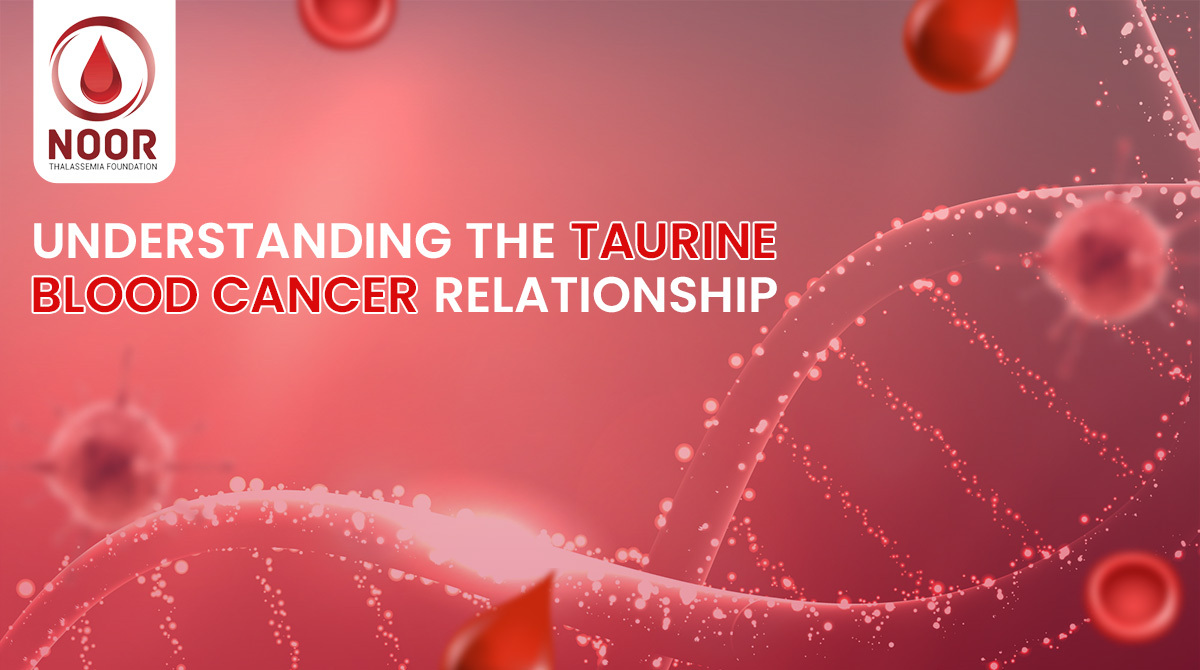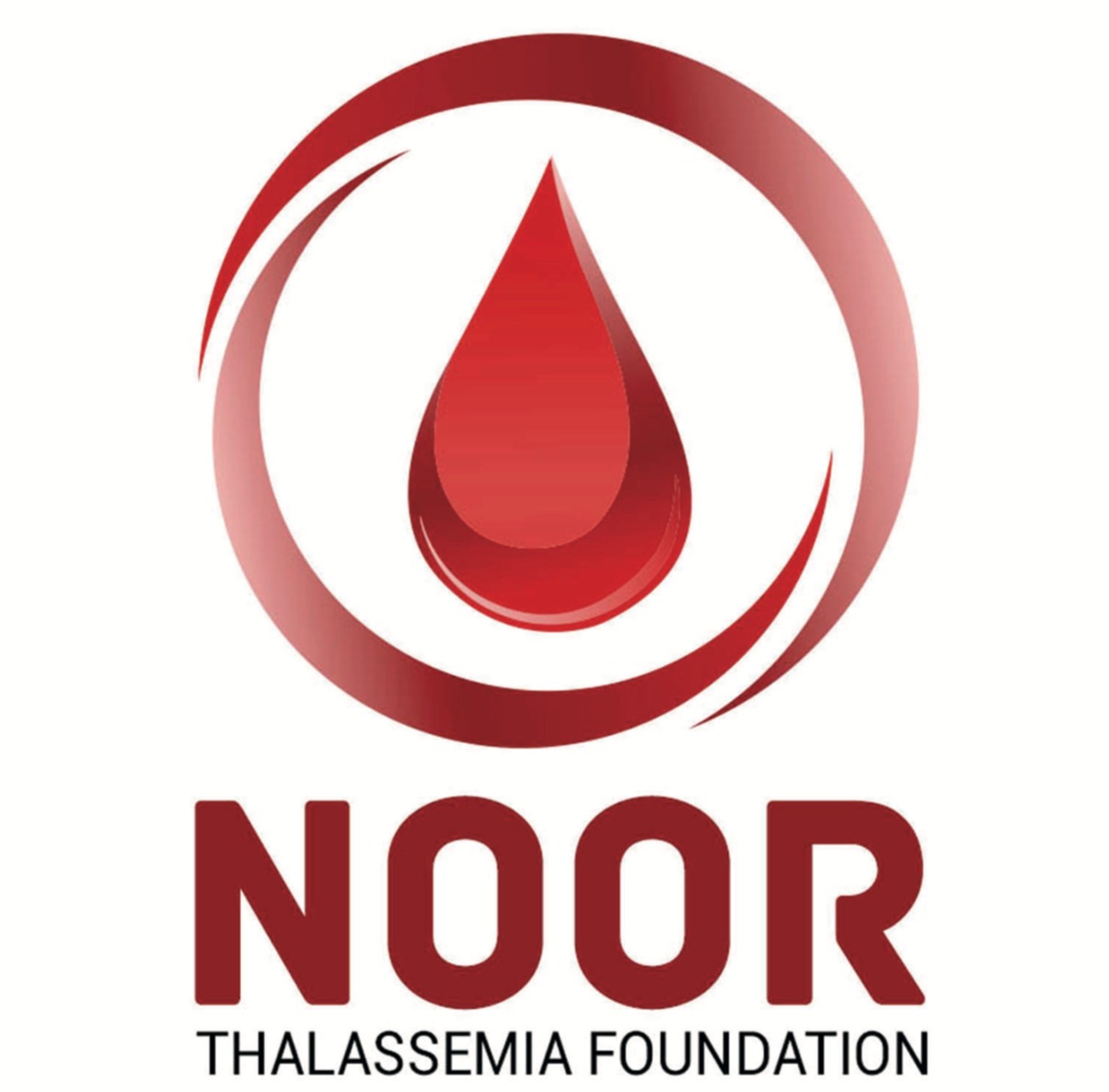Understanding the Taurine Blood Cancer Relationship
23-Jul-2025

Explore the potential link between taurine and blood cancer, including insights into its role in the body and scientific findings. Learn how Noor Thalassemia Foundation supports patients with free treatments for cancer and blood disorders.
Blood cancer, the umbrella term covering various malignancies that impact blood, bone marrow and lymphatic systems, has emerged as a serious public health problem worldwide. Here, we will investigate taurine's role as an amino acid found naturally within food sources that's widely consumed such as supplements and energy drinks; yet its connection to leukemia, lymphoma and myeloma remains uncertain due to various misconceptions pertaining to taurine's use as well as scientific research into possible treatments of its impact on blood cancer's effects.
What Is Taurine and Its Role in the Body?
Taurine, an amino acid made up of sulfur-containing molecules found abundantly throughout our tissues including our brain, heart, eyes and muscles, plays an integral part in many physiological functions such as bile salt formation, cell hydration and maintaining proper heart function. While other amino acids like tauine for protein synthesis processes alone, taurine plays an essential part in various other processes including bile salt production, maintaining optimal heart functioning as well as supporting proper heart functioning in general.
Taurine is often added to energy drinks, baby formula, and dietary supplements due to its potential benefits for cardiovascular health and physical performance enhancement. But safety issues concerning potential connections to serious conditions like cancer have recently arisen as concerns.
Is Taurine Linked to Blood Cancer?
Taurine and its relationship to blood cancer has long been debated among health experts and professionals, yet no definitive scientific studies link taurine directly with leukemia, lymphoma or myeloma development. There may even be protective benefits against oxidative stress and inflammation which have been known to contribute towards its formation - factors which contribute significantly towards cancer occurrence.
However, it's important to recognize that taurine's role in cancer, including blood cancer, remains controversial within scientific circles. While taurine itself should unlikely lead to blood cancer in anyone without preexisting health issues consuming high quantities via energy drinks or supplements should be closely monitored in such situations.
Taurine Blood Cancer Treatment
Although taurine supplementation may not yet be considered standard treatment for blood cancer, interest has grown around its potential as an adjuvant therapy. Research indicates that taurine can support chemotherapy treatments by increasing cancer cells' susceptibility to their effects thereby potentially improving treatment outcomes and potentially increasing survival rates
Taurine has demonstrated in animal models an ability to protect against radiation-induced damage, making it particularly relevant for cancer patients undergoing radiation therapy. More studies are necessary in order to establish its efficacy against blood cancer treatment; nonetheless it shows promise as a supportive therapy option.
Noor Thalassemia Foundation
At Noor Thalassemia Foundation (NoorTF), our mission is to offer free medical treatments to economically-disadvantaged patients suffering from thalassemia, hemophilia or cancer and we take great pleasure in assuring access to top quality medical care without financial strain for these individuals. We remain dedicated to improving their quality of life while offering access to cutting-edge care free from financial constraints.
NoorTF also understands the power of community and donations as vital tools in creating lifesaving treatments for those in need. Your donations to NoorTF make an invaluable difference in lives of many affected by debilitating diseases like cancer.
Frequently Asked Questions
1. What does taurine do to blood?
Taurine plays an invaluable role in supporting cardiovascular health and regulating electrolyte balance - two components essential to healthy functioning blood cells. Although taurine does not directly produce these cells itself, its use helps promote overall blood health by decreasing oxidative stress and inflammation levels in your system.
2. How to decrease blood cancer?
To reduce blood cancer risks, it's crucial to live a healthy lifestyle, including regular physical exercise and eating well-balanced meals as well as forgoing smoking or excessive alcohol use. Early diagnosis and prompt treatment play key roles in effectively managing these diseases.
3. Taurine and Lung Cancer
Studies on taurine's effects on lung cancer prevention remain limited, though its antioxidant properties could potentially reduce oxidative stress in lung tissue that contributes to cancer formation. More research needs to be completed before drawing any definitive connections between taurine and lung cancer prevention.
4. Taurine and Colon Cance
Studies suggest taurine could offer protection from colon cancer due to its ability to regulate oxidative stress and inflammation within the colon, but its exact role in cancer prevention remains under investigation.
5. Energy Drinks and Colon Cancer
There is no conclusive proof linking energy drinks directly with colon cancer; however, their high amounts of caffeine, sugar, and stimulants such as amphetamine may contribute to other health concerns like increased blood pressure or stress on the heart - which in turn could indirectly negatively impact overall wellbeing.
6. Do sugar-free energy drinks cause cancer?
While sugar-free energy drinks do not directly cause cancer, their artificial sweeteners and chemicals could potentially have long-term negative impacts on health. Therefore it's wise to consume energy drinks moderately while being mindful of their impact on overall wellness
 +042 111 666 783
+042 111 666 783